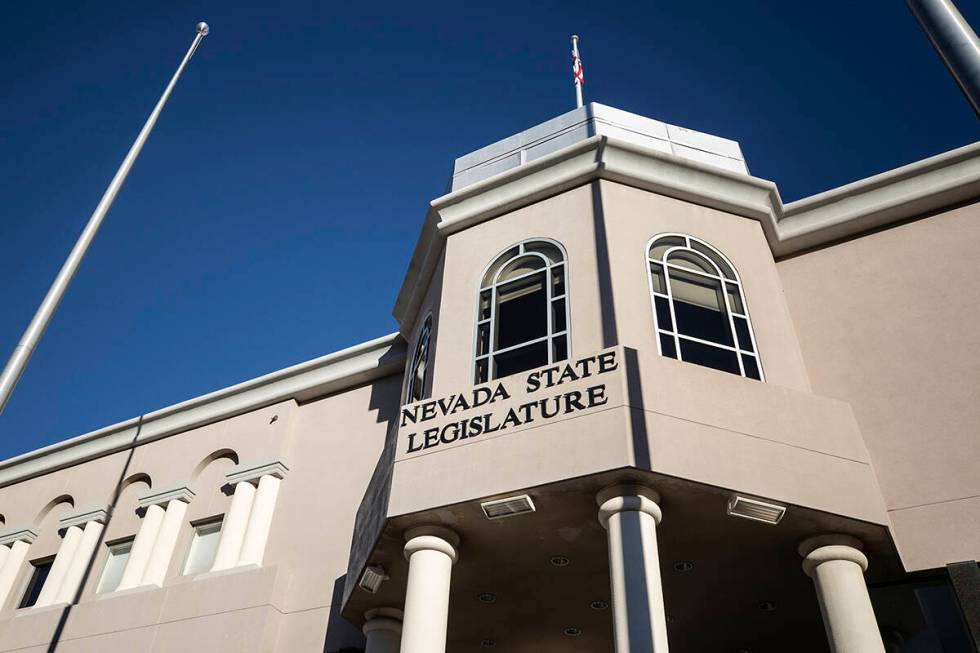STEVE SEBELIUS: 3 ideas for the 2023 Legislature

Before the 2023 Legislature adjourns in early June, lawmakers will deal with more than 1,000 bills and resolutions.
Here’s a list of ideas that they should consider before wrapping up the session.
Election reform: Gov. Joe Lombardo called for an end to automatically sending mail ballots to every active registered voter. But majority Democrats are not going to roll back a law that makes it easy and convenient to vote, especially for people who tend to vote for Democrats.
But Democrats should be open to one change: Moving up the deadline when mail ballots must be received by county election departments. Currently, ballots must be postmarked by Election Day and received within four days in order to be counted. This means final election results aren’t known until the week following the election.
Instead, the Legislature should require that mail ballots go out a week earlier, and be due by the Tuesday before Election Day. That would give the county enough time to receive and count mail ballots, so that the results of the election would be available on election night as soon as all the in-person Election Day votes are counted. And it would give voters the same number of days they have now to fill out and return their ballots.
Not only would this cut down on false allegations of fraud, it would enable voters to know the winner immediately. This will be especially critical in next February’s presidential primary: Nevada votes in early February, with Georgia just a week later. It’s critical Nevada announce its results swiftly.
Local government reform: The murder of Review-Journal investigative reporter Jeff German in September shined a light on an obscure office in Clark County, that of public administrator. The former head of that office — and the man accused of German’s murder — apparently ran his fiefdom with an iron fist, harassing and bullying employees, according to German’s reporting.
The Legislature should do two things, the first one easy: Make all county offices — at least in larger counties such as Clark and Washoe — appointed, either by the county manager or by the manager with ratification from the County Commission. There’s no need to have the clerk, recorder, assessor, treasurer and public administrator be elected positions, much less partisan offices. Appointees, unlike elected officials, can be disciplined if they violate workplace harassment and retaliation rules, and candidates can be vetted for their work history and experience.
And that brings us to the second reform, this one more difficult: The Legislature must provide for a process whereby elected officials can be disciplined if they harass staffers. Just because a person has the backing of the voters shouldn’t allow them to run amok, with government administrators hamstrung.
A way must be found — consistent with due process, and as insulated from politics as possible — to ensure elected officials don’t abuse their positions and create climates of fear and harassment among workers.
School district reform: The surfeit of ideas to reform education — including a failed initiative to allow local governments to form their own school districts — shows the need for reform is almost universal. Lombardo has pledged to advocate for changes in school governance if performance doesn’t improve in the next two years.
But why wait? There are proposals in the Legislature to appoint at least some school board members. Here’s one: In larger counties (currently Clark and Washoe), the Legislature should create hybrid school district boards of trustees, with three members elected from districts of equal population, and four others appointed by the County Commission.
But not just any appointees: One of the four would need experience in managing an organization with a budget of at least $1 billion, such as a large corporation or hotel-casino. Another would have to have a background in human resource management. A third would have to be a member of the State Bar of Nevada. And a fourth would have to have had at least 10 years experience as a classroom teacher.
That way, much-needed expertise would be brought to bear on the problems facing education in Nevada’s larger districts. And there’s plenty of precedent: Most judges need to be lawyers and sheriffs need law enforcement experience. In addition, appointees to the Gaming Control Board are required to have backgrounds in law, accounting and investigations.
If we care enough to about the gambling industry to require subject-matter experts, how much more should we want experts to be overseeing our schools?
It won’t solve all of the problems facing education in Nevada, but it would be a solid start.
Contact Steve Sebelius at SSebelius@reviewjournal.com or 702-383-0253. Follow @SteveSebelius on Twitter.